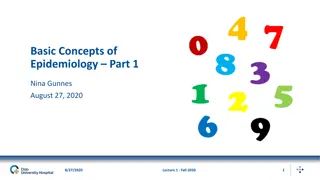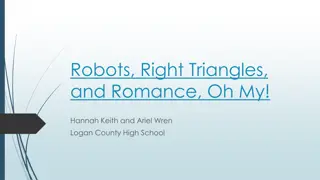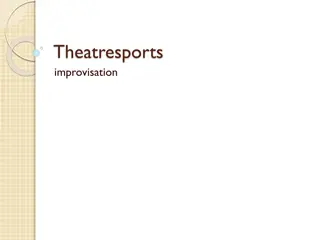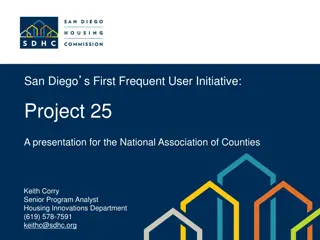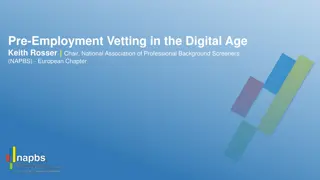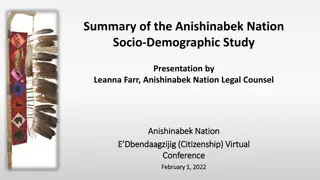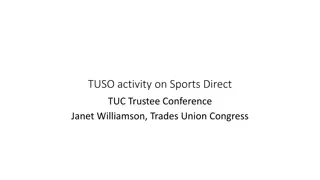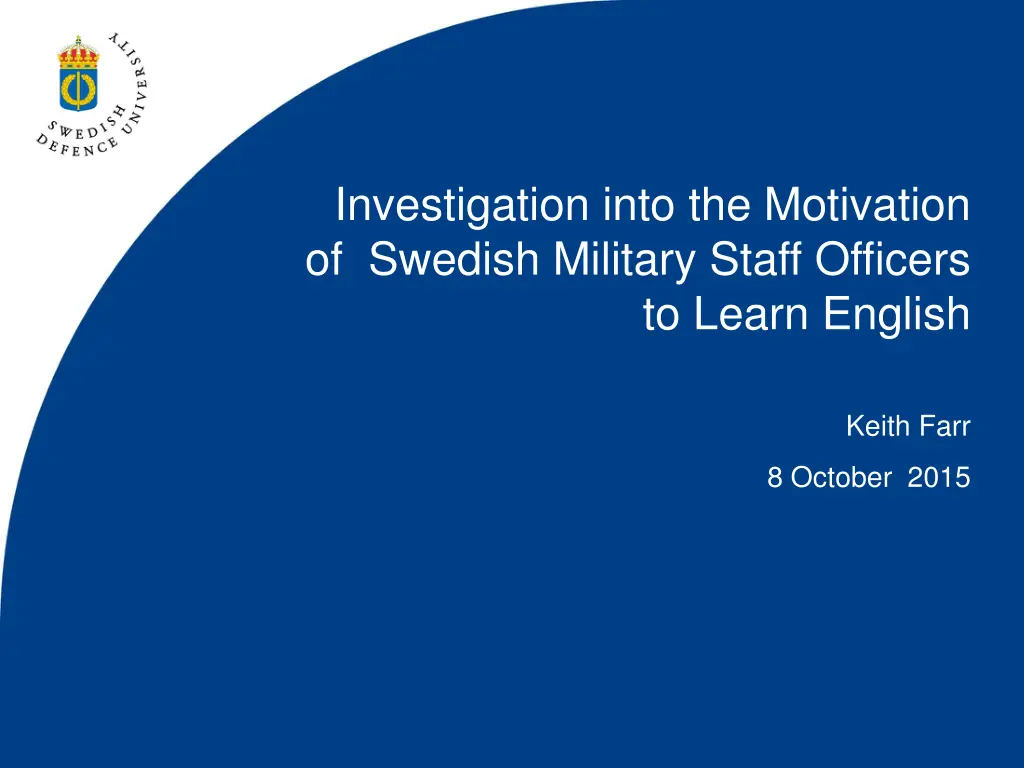
Motivation of Swedish Military Officers Learning English
Explore the motivation of Swedish military staff officers in learning English, examining factors like integrativeness, intrinsic vs. extrinsic motivation, possible selves theories, and the L2 Motivational Self System. The study aims to enhance understanding of L2 motivation within a military context for an improved learning environment.
Download Presentation

Please find below an Image/Link to download the presentation.
The content on the website is provided AS IS for your information and personal use only. It may not be sold, licensed, or shared on other websites without obtaining consent from the author. If you encounter any issues during the download, it is possible that the publisher has removed the file from their server.
You are allowed to download the files provided on this website for personal or commercial use, subject to the condition that they are used lawfully. All files are the property of their respective owners.
The content on the website is provided AS IS for your information and personal use only. It may not be sold, licensed, or shared on other websites without obtaining consent from the author.
E N D
Presentation Transcript
Investigation into the Motivation of Swedish Military Staff Officers to Learn English Keith Farr 8 October 2015
Rationale Personal experience as teacher Desire to improve understanding of L2 motivation within military context Subject not widely researched in this context Hope that improved knowledge = improved learning environment
Contents Theoretical Overview Methodology Results & Discussion Action?
Foundations of motivation in SLA Gardner (1960s- 80s) Integrativeness Instrumentality Language learning motivated by attitudes towards members of L2community- wish to communicate with and/ or become like them integrativeness/ integrative motivation. Challenged in light of globalisation/ development
Intrinsic vs Extrinsic Motivation External Regulation - threats or rewards which are applied by external forces. Introjected Regulation - willing to accept external rules as normal. Identified Regulation - accept that an activity may be necessary and useful in order to achieve something of value. Integrated Regulation - adopt certain behavior because it is a full part of the learner s needs and wants. Close to intrinsic motivation?
Possible Selves Theories Regulatory Focus (Higgins) Promotion Focus Prevention Focus Ideal Self Ought Self Behaviour regulated to close gap between current and future self- Self discrepancy theory
The L2 Motivational Self System Ideal L2 Self- If person we would like to become speaks an L2, the ideal L2 self is a powerful motivator to learn the L2 because we would like to reduce the discrepancy between our actual and ideal selves. Ought-to L2 Self- Attributes believed needed to avoid possible negative outcomes- may not reflect own desires or wishes. L2 Learning Experience- Related to the immediate learning environment and experience.
Research Questions How can the motivational characteristics of Swedish military officers studying English as part of a staff officer course be described? Can the characteristics which contribute most significantly to the effort that Swedish military officers are willing to use learning English be viewed in line with the L2 Motivational Self System? How do officers view their motivation in light of their participation in international exercises and training?
Method of Study Research Context- FHS SU course Mixed methods- interviews followed by questionnaire
Results Qualitative phase Interviews = six main themes identified Ideal L2 Self Ought-to L2 Self Instrumental- Promotion Focus Instrumental- Prevention Focus L2 Learning Experience- Course L2 Learning Experience- CJSE
Ideal L2 Self/ Promotion Focus Simply, it s becoming a better staff officer and if you get command of a unit, to become a good commander and, you need English skills to do that . I can see myself serving for example an international headquarters, the Nordic Battle Group maybe going westwards, then I d like to perform better You will not have as much responsibility as you will have if you are a good English speaker
Ought-to L2 Self/ Prevention Focus The biggest worry in a staff is that people misunderstand you and that has happened during this exercise. I don t know if anyone has misunderstood me but people misunderstand one another . I will make major mistakes or do wrong decisions if I don t understand what I m reading when I m sitting in front of a huge English document. I have to understand them and I ve got to be familiar with English. If not, I should not sit on such a task . It s like being nominated for the captains course or major. When you know you ve been nominated, you start making the effort. Not until then because that s a waste of time and that s how it works in the army. If a box is checked, don t make an effort .
L2 Learning Experience- Course You have the connection to our other subjects. It s important to motivate us even more if we could find books and texts and working with a text we re actually reading in another course, that s of course a motivation factor and we can have synergies with other courses . I think everyone needs to learn more and I don t know how that would fit in the tight program of SU If the focus is on tactics and we have a big exam and then one lesson in English, it sometimes feels like it disrupts the main subject . Some of the things we did in was not really aiming to the goal; the goal I mean NATO documents, writing orders and doing the presentation
L2 Learning Experience - CJSE Attending any exercise will address the fact that you need to be able to read English in the military form . I think this was good, being forced to join some kind of exercise like this in an early stage on the SU course and I would have been more motivated in the English classes .
Mean values of motivational scales (Criterion measure M= 3.5)
Correlations between variables Promotion focus Prevention Focus + + Ideal L2 Self Ought to L2 Self + + L2 Learning Experience (Course & CJSE) Also- Ideal L2 Self & Ought to L2 Self. Why?
Ideal L2 Self & Promotion Focus Central Importance to motivation Not directly motivated by the desire for integration or? High mean score for Ideal L2 Self and the promotion focus contrasts with lower mean for criterion measure. Intervention?
L2 Learning Experience- CJSE Difficulty in creating/ sustaining vivid visualization of future self Simulation/ role play may help to develop vivid picture Identify need to be better communicator (Ideal L2 self)
L2 Learning Experience- Course Direct link between syllabus and other studies Need for a relevant, subject linked syllabus for the SU English course Time pressure Role of peers
Ought to Self/ Prevention Focus In the military context, everything you do is in a way kind of rated: good, bad, all the time, everything you do. A commander uses the wrong word and it s very funny, everybody s laughing . Ideal or Ought to? Promotion or Prevention?
What next? Possible selves are malleable and can be influenced by intervention to enhance the content of possible selves. Changing possible selves through intervention can lead to positive changes in academic behaviour and better academic performance Intervention can help teachers and students focus on what they want to become and avoid becoming . Lee & Oyserman (2009)
Generate and sustain a vision for learning Construct the Ideal L2 Self- create the vision Imagery enhancement- strengthen the vision Make the Ideal Self plausible- substantiate the vision Operationalise the vision- goals/ action plan Activate the Ideal L2 Self- communicative tasks- keep vision alive Counterbalance the vision- link to Ought to L2 Self
Generate and sustain a vision for learning At least be aware of the need to build and sustain a vision, linked to future goals. Use this vision as a key to intrinsic motivation Guided discussion? Role-playing? Speakers?
References Deci, E. L., & Ryan, R. M. (1985). The general causality orientations scale: Self-determination in personality. Journal of research in personality, 19(2), 109-134. D rnyei, Z..(2009). The L2 Motivational Self System. In D rnyei, Z.. & Ushioda, E., (Eds), Motivation, Language Identity and the L2 self 36(3), 9-11. Bristol: Multilingual Matters D rnyei, Z., & Ushioda, E. (2013). Teaching and researching: Motivation. London: Routledge. Gardner, R. C., & Lambert, W. E. (1972). Attitudes and Motivation in Second-Language Learning. MA: Newbury House. Higgins, E. T. (1998). Promotion and prevention: Regulatory focus as a motivational principle. Advances in experimental social psychology, 30, 1-46. Lee, S. J., and D. Oyserman. "Possible selves theory." Psychology of classroom learning: An encyclopedia. Detroit, MI: Macmillan Reference USA(2009). Markus, H., & Nurius, P. (1986). Possible selves. American psychologist,41(9), 954. Noels, K. A., Pelletier, L. G., Cl ment, R., & Vallerand, R. J. (2000). Why are you learning a second language? Motivational orientations and self-determination theory. Language learning, 50(1), 57-85. Ruvolo, A. P., & Markus, H. R. (1992). Possible selves and performance: The power of self- relevant imagery. Social cognition, 10(1), 95-124. Name/Presentation to change, select Visa>Bildbakgrund (or the English equivalents) 2010-01-01




